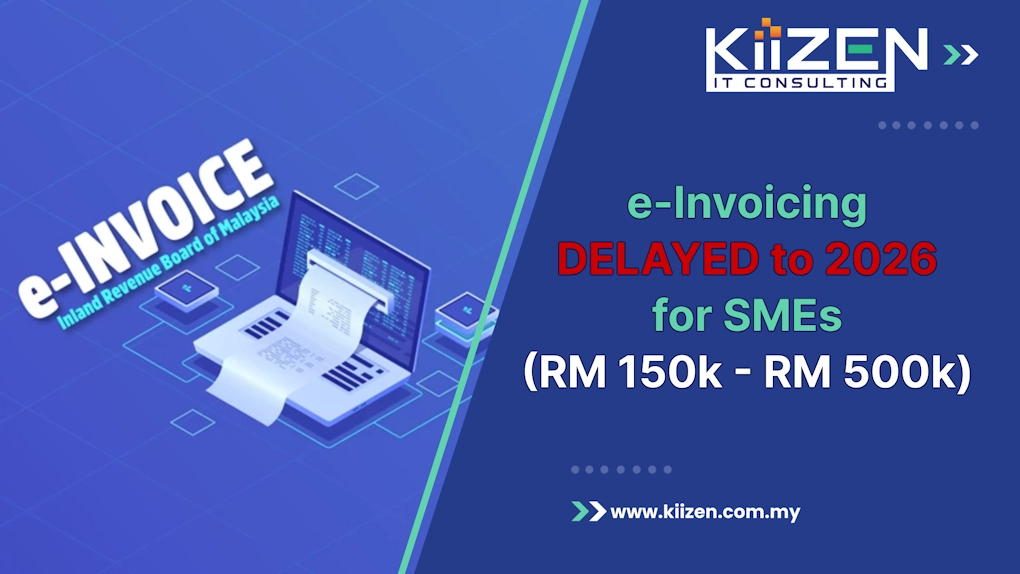Annual Sales between RM150k to RM500k, the implementation date will be postponed to 1st January 2026.
The Malaysian government has announced a significant extension of the e-Invoicing implementation deadline for small and medium enterprises (SMEs), pushing the requirement to January 1, 2026.
This crucial decision affects businesses with annual revenue between RM150,000 and RM500,000, providing essential breathing room for digital transformation.
Key Highlights of the e-Invoicing Extension:
- Implementation deadline extended to 1st January 2026
- In addition, six-month transition period will also be provided
- Over 240,000 SMEs to benefit from the extension
- Businesses earning below RM150,000 annually fully exempted
- Free access to MyInvois portal and mobile app
New Updated e-Invoice Implementation Timeline
| Phase | Targeted Taxpayer | Implementation Date | Interim Relaxation Period |
| 1 | Taxpayers with an annual turnover or revenue of more than RM100 million | 1 August 2024 | 1 August 2024 to 31 January 2025 |
| 2 | Taxpayers with an annual turnover or revenue of more than RM25 million and up to RM100 million | 1 January 2025 | 1 January 2025 to 30 June 2025 |
| 3 (updated) | 1 July 2025 | 1 July 2025 to 31 December 2025 | |
| 4 (new) | Taxpayers with an annual turnover or revenue of more than RM150 thousand and up to RM500 thousand | 1 Jan 2026 | 1 Jan 2026 to 30 June 2026 |
Current e-Invoicing Success and Implementation
The e-Invoicing system, initially launched in August 2024 for larger corporations with annual revenue exceeding RM100 million, has already shown promising results:
- 25,000+ companies successfully onboarded
- 181.3 million e-Invoices generated
- Widespread adoption across major businesses
Financial Support and Tax Benefits for SMEs to facilitate the e-invoicing transition
The government has introduced several support measures:
- Tax deductions up to RM50,000 annually for e-Invoicing consultancy fees (2024-2027)
- Accelerated capital allowances for ICT equipment and software
- Deduction period reduced from four to three years starting 2024
This extension demonstrates the government’s commitment to supporting small businesses while ensuring a smooth transition to digital invoicing systems.
SMEs are encouraged to utilize this extended timeline to prepare their systems and take advantage of the available support resources.
Sources:
e-Invoicing Rollout For SMEs Deferred To 2026 – BusinessToday
BERNAMA – E-Invoice Exemption Benefits Over 700,000 Small Traders – Amir Hamzah Azizan






